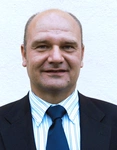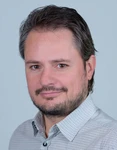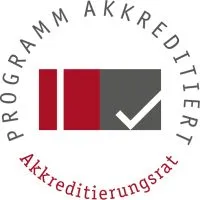Start your career in mechanical engineering with a Bachelor's degree at THI. Because mechanical engineers are in demand as never before and the career prospects are diverse.
Almost all products of daily use are produced or operated highly efficiently by means of intelligent, digital or networked machines, from packaging machines to high-speed lifts, from printing machines to machine tools, from construction machines to industrial robots. And the Green Deal needed to save the climate cannot be realised without mechanical engineering: it plays a key role in reducing global CO2 emissions, as it can influence a good 70% of global emissions. Mechanical engineers develop and control new products, organise modern manufacturing processes, work in technical product and project management or act as consultants.
Our Bachelor's programme in Mechanical Engineering (HyFlex) offers you a broad technical foundation and a focus on mechatronics incl. programming, sustainability in mechanical engineering, entrepreneurship and teamwork.
You can study HyFlex, which means location-independent and flexible, because the lectures in the lecture hall are mostly broadcast live in parallel. Alternatively, other digital formats such as teaching videos, lecture recordings, inverted classrooms and digital office hours are offered. You decide where you want to follow the lecture from. You are also welcome in the lecture hall at any time. All you need for your HyFlex studies is a laptop, an internet connection and a webcam. Events where you have to be present, such as practicals in the laboratories, take place in a few, blocked attendance phases on site. An intensive support and networking programme rounds off this innovative, German-language Bachelor's programme.
Women are welcome, especially as we offer a mentoring programme and network to facilitate women's access to the professions! We are committed to gender equality.
The TH Ingolstadt is located in the heart of Bavaria and has excellent transport connections (A9 or ICE) - ideal for studying with fellow students from all over Germany. Find out more now and start your career in the exciting world of mechanical engineering!





![[Translate to English:] Logo Akkreditierungsrat: Systemakkreditiert](/fileadmin/_processed_/2/8/csm_AR-Siegel_Systemakkreditierung_bc4ea3377d.webp)








![[Translate to English:] Logo IHK Ausbildungsbetrieb 2023](/fileadmin/_processed_/6/0/csm_IHK_Ausbildungsbetrieb_digital_2023_6850f47537.webp)



